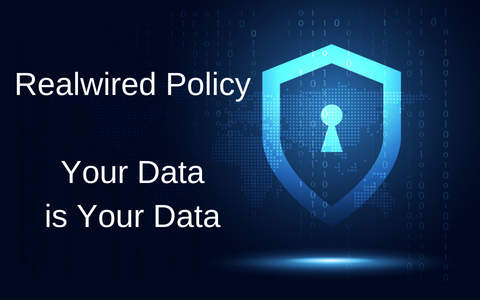Transaction data is vital for valuation departments and has a multitude of valuable uses from general decision making, to portfolio review and testing, predictive analytics, industry behavior and trends, underwriting support, making better and faster decisions, indexing, and more.
At Realwired, we 100% believe that the data that is accumulated as part of your workflow system is yours and yours alone. Yours to manage and use to the benefit of your organization.
It’s essential to recognize and have clarity around who has rights to the data and its important to have a data governance and management plan.
Real estate data is a critical component of property appraisals, which banks use to determine the value of properties being used as collateral for loans. Appraisals provide essential information for lenders, borrowers, and other stakeholders, informing critical decisions about financing, investing and risk management.
Data provides confidence in making decisions. Good data improves the reliability of appraisals, expedites reviews and satisfy regulators.
Check your contracts
Appraisal software providers, including AMCs, have access to vast amounts of data, including subject property values, building condition, market data, lease data and comp data. The selling of this data to third parties or other companies has become more prevalent. It’s important to check the fine print in your contracts with your software providers and vendors. Some contract language raises concerns about the security and confidentiality of your appraisals and general real estate data.
Liability concerns
The misuse of real estate data can have broader implications, such as crossing the line of borrower privacy. For instance, the sharing of confidential data could result in brokers calling your borrowers as part of lead generation lists. Or other third parties like contractors reaching out to your borrowers to market their services to address capital expenditures. On the extreme end of unintended outcomes might be liability to the unintended disclosure of the property’s financials.
Prioritize data security
It’s essential for banks and other financial institutions to work with appraisal software providers that prioritize data security and confidentiality. These providers should have strict policies in place for safeguarding real estate data, including secure storage, access controls and employee training. At Realwired, our firm is SOC2 compliant, utilizing cybersecurity compliance framework developed by the American Institute of Certified Public Accountants (AICPA). We do this to ensure that third-party service providers store and process client data in a secure manner.
Track record of confidentiality
It’s critical for banks to conduct due diligence when selecting appraisal software providers, ensuring that they have a strong track record of protecting sensitive data. Banks should also have policies that specify strict contracts and agreements in-place that dictate how real estate data is used and shared, preventing the non-disclosed or non-approved sale of this information to third parties.
At Realwired, we believe you should have control of your data AND explore ways to use it in your best interest. You have options to hold it entirely in-house or agree to share it in a cooperative scenario to expand what you have access to. It’s your choice. It’s smart to consider opportunities for you to effectively use transaction data from your workflow system, should you choose to do so. Leveraging your data internally can be very advantageous.
Protect your data.
Sleep well knowing that Realwired has your back.
Your data is your data.

